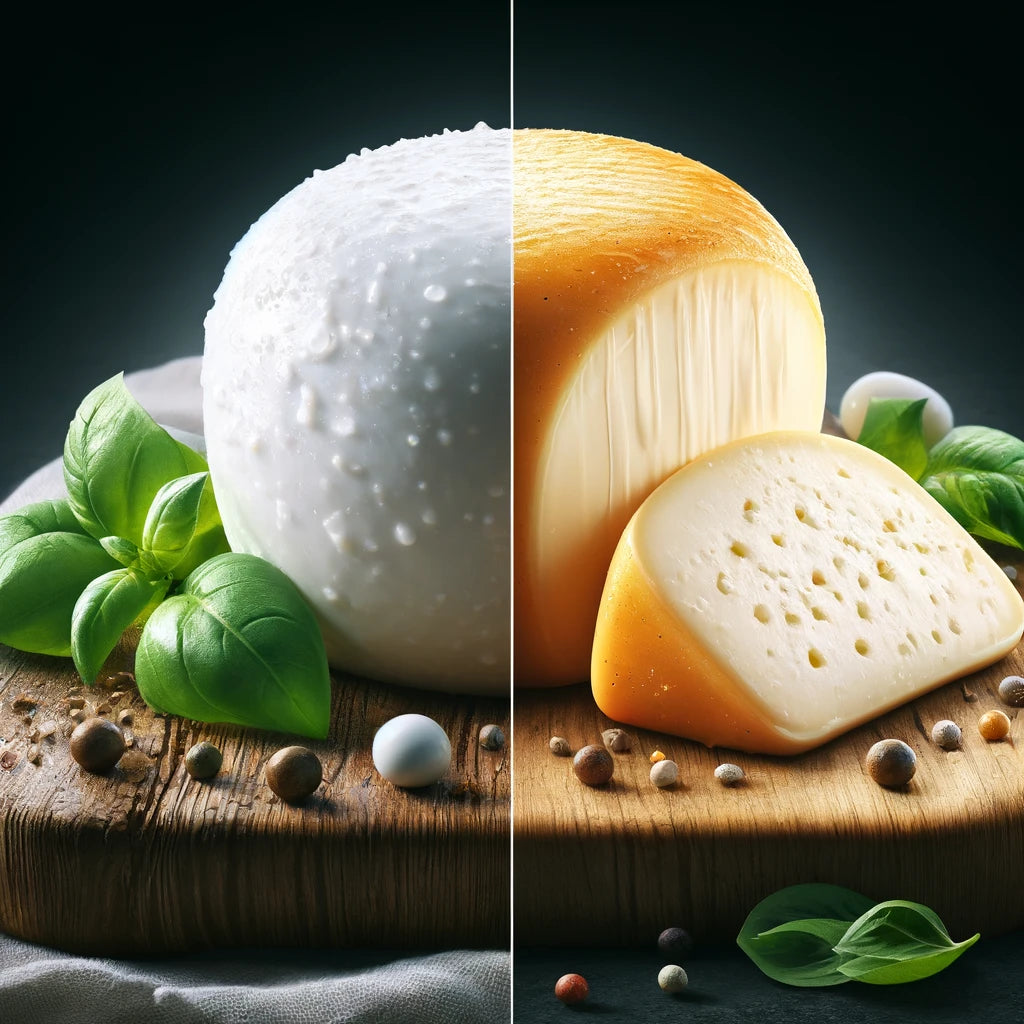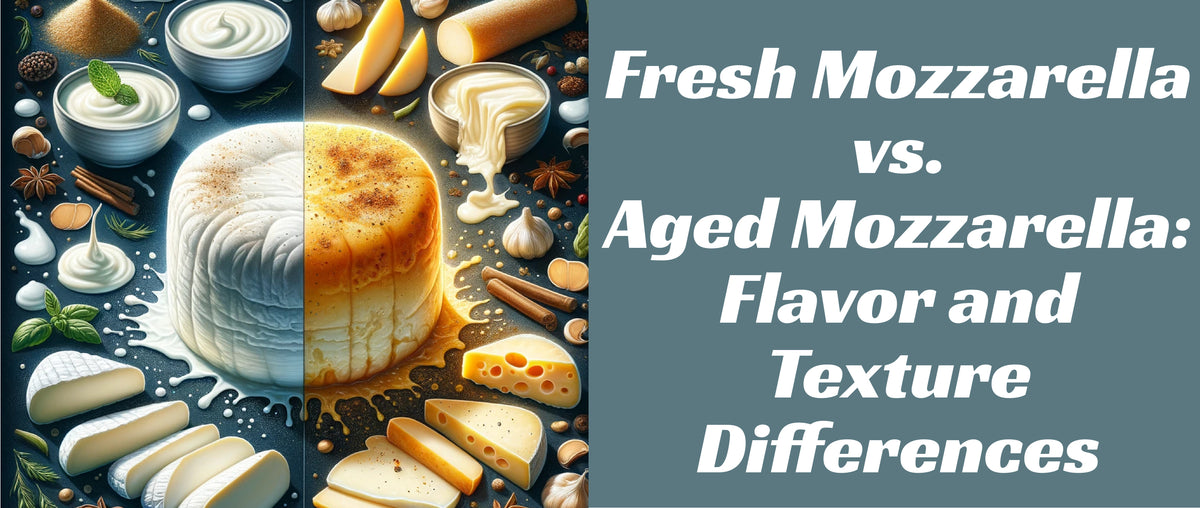Fresh Mozzarella vs. Aged Mozzarella: Flavor and Texture Differences
Mozzarella cheese, with its rich history and versatile applications, stands as a cornerstone in both traditional and modern cuisines around the globe. As we delve into the nuances between fresh and aged mozzarella, our exploration will not only highlight their distinctive flavors and textures but also touch upon how vegan and plant-based cheese alternatives are carving out their own space in the culinary world.
Understanding Mozzarella
Mozzarella Cheese embodies a tradition that dates back centuries, originally from the Campania region of Italy. The art of making mozzarella involves the pasta filata process, where the cheese curd is heated and stretched to achieve its characteristic texture. This process is pivotal in differentiating between the two main types of mozzarella: fresh and aged.

Fresh Mozzarella
Fresh mozzarella is celebrated for its soft, moist texture and delicate, milky flavor. It is traditionally made from buffalo milk, though cow’s milk variants are also popular. This type of cheese is often found in ball form, soaked in brine to preserve its moisture.
- Characteristics: Fresh mozzarella is characterized by its high moisture content, lending to a smooth texture and a subtle, creamy taste. It's a perfect addition to salads, light pasta dishes, and atop pizzas where its moisture can be a boon, melting into a pillowy softness.
- Types of Fresh Mozzarella:
- Mozzarella di Bufala: This variant, originating from buffalo milk, offers a richer taste compared to cow’s milk mozzarella.
- Fior di Latte: Made from cow’s milk, it provides a lighter, more delicate flavor.
- Burrata: A unique form where the outer shell is solid mozzarella while the inside contains a mixture of mozzarella and cream, offering a luxurious, creamy texture.
- Bocconcini: Small balls of mozzarella that are ideal for appetizers or as salad components.
Aged Mozzarella
Contrasting its fresh counterpart, aged mozzarella undergoes a drying and aging process, resulting in a firmer texture and a saltier, more pronounced flavor. This type of mozzarella is more suited for grating over dishes and baking, where its lower moisture content allows for better browning and melting characteristics.
- The Aging Process: Aging mozzarella dehydrates the cheese, concentrating its flavors and altering its texture to become more compact and less perishable.
- Low-Moisture Mozzarella: This variety, with its reduced water content, is a staple in the world of pizza making, offering a perfect melt and a slight tang that complements a wide range of toppings.
Flavor and Texture Comparison
When it comes to using mozzarella in cooking, the choice between fresh and aged can significantly impact the final dish's flavor and texture.
- On Pizza: Fresh mozzarella offers a moist, tender melt that is ideal for traditional Neapolitan pizzas. In contrast, aged mozzarella provides a chewy texture and a more robust flavor, suitable for American-style pizzas that require a cheese that can withstand longer baking times.
- In Cooking: Fresh mozzarella's moisture lends a delicate, creamy touch to dishes, making it a favorite for fresh salads, while aged mozzarella's firmer texture and deeper flavor profile make it better suited for hearty, baked dishes where it can fully express its character.
The Rise of Vegan and Plant-Based Cheese Alternatives
In recent years, the demand for Vegan Cheese and plant based cheese options has surged, with products designed to mimic the texture and taste of traditional cheeses like mozzarella. Made from ingredients such as cashews, almonds, and soy, these vegan alternatives offer a lactose-free, cholesterol-free option for those on dairy-free diets, without sacrificing the pleasure of enjoying cheese.
- Vegan Mozzarella: Often made from Cashew Butter or other nut bases, vegan mozzarella alternatives are crafted to replicate the soft, stretchy texture of traditional mozzarella, making them a suitable option for pizzas, salads, and sandwiches.
- Plant-Based Cheese Innovations: With the addition of Garlic Butter, unsalted butter india, and even Fat Free Butter alternatives, the plant-based cheese market is expanding its offerings, providing an ever-growing array of flavors and textures for the health-conscious and ethically minded consumer.
Conclusion
In the culinary journey from traditional Italian kitchens to modern, health-conscious tables, mozzarella cheese stands as a testament to the richness and adaptability of culinary traditions. Whether it's the soft, delicate embrace of fresh mozzarella or the bold, matured character of aged mozzarella, this cheese offers a spectrum of flavors and textures to suit any dish or preference. As the culinary world continues to evolve, the introduction of vegan and plant-based cheese alternatives further enriches our choices, offering sustainable, inclusive options without compromising on taste or tradition. In embracing both the time-honored methods of cheese-making and the innovative approaches to plant-based alternatives, we find a beautiful balance between honoring our past and adapting for a sustainable future. Mozzarella, in all its forms, embodies the spirit of culinary diversity and innovation, continuing to inspire chefs and home cooks alike to explore, create, and enjoy the vast world of flavors it has to offer.








